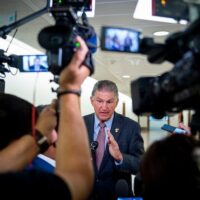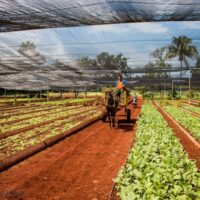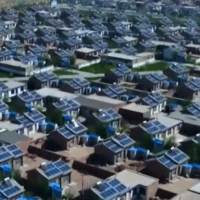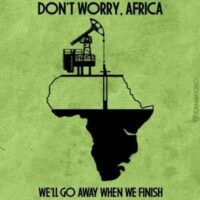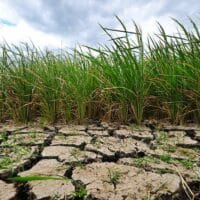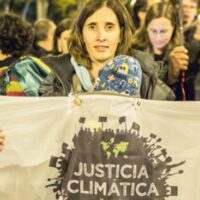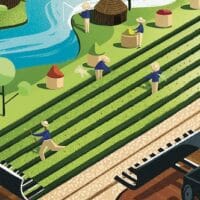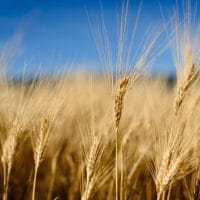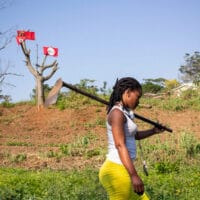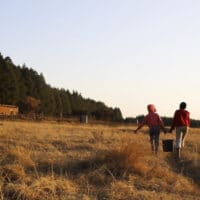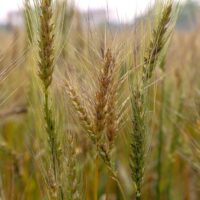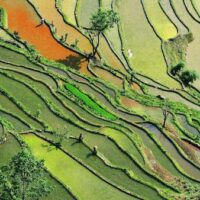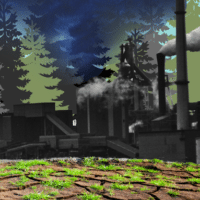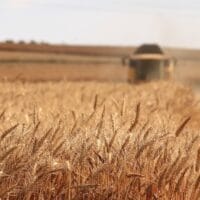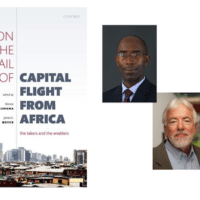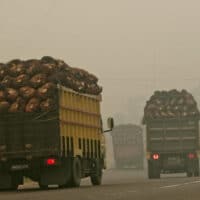-
Inside the Democrats’ climate deal with the devil
The new climate package furthers the U.S.’ most profligate pastimes: drilling oil and driving big cars.
-
Canada could learn from Cuba’s sustainable agriculture
Cuba has more than 380,000 urban farms producing 1.5 million tons of vegetables each year.
-
Nationalise energy firms, unions demand as BP reports £6.9bn profits and energy bills soar
Fossil fuel firm’s profits are ‘an insult to families struggling to get by,’ TUC says.
-
China’s farmers embrace rooftop solar power
China has vowed to accelerate the installation of clean energy. Rooftop solar installations have emerged as a major force to achieve that. Nearly 53 gigawatts of solar capacity were added in 2021, with more than half coming from rooftop installations.
-
Africa taken for ‘neo-colonial’ ride
SYDNEY and KUALA LUMPUR. Like so many others, Africans have long been misled. Alleged progress under imperialism has long been used to legitimize exploitation. Meanwhile, Western colonial powers have been replaced by neo-colonial governments and international institutions serving their interests.
-
Existing climate mitigation scenarios perpetuate colonial inequalities
The core countries of the Organisation for Economic Co-operation and Development (OECD) and the rest of Europe (collectively referred to here as the Global North) use on average about 130 gigajoules of energy per capita each year, nearly ten times more than what low-income countries use (13·4 GJ/capita).
-
India to boost Sakhalin-1 oil output
After Sakhalin-2, Moscow also plans to nationalise Sakhalin-1 oil and gas development project by ousting U.S. and Japanese shareholders. But Moscow will make an exception for India so that OVL which holds 20% stake will remain & continue to work.
-
At Bonn climate talks, rich nations stab poor countries in the back — again
The rulers of rich nations are like arsonists who, after lighting the fire, prevent anyone calling the fire brigade. An example of this took place at the Bonn Climate talks that finished on June 16.
-
Contributions of peasant farmer communities: The case of Venezuela
Throughout their history, agricultural, chemical and food corporations have created and implemented tactics to marginalize the peasant farmer community and indigenous people.
-
Why are global wheat prices rising so much?
The global food crisis has now grown to such proportions that everyone is talking about it (even though world leaders are doing relatively little about it).
-
Land in South Africa shall be shared among those who work it: The Twenty-Third Newsletter (2022)
In March 2022, United Nations (UN) Secretary-General António Guterres warned of a ‘hurricane of hunger’ due to the war in Ukraine. Forty-five developing countries, most of them on the African continent, he said, ‘import at least a third of their wheat from Ukraine or Russia, with 18 of those import[ing] at least 50 percent’.
-
Dossier no. 53: This land is the land of our ancestors
The labour relations on South African farms continue to maintain race, gender, and class inequalities as a central character of work and life.
-
Food, famine and war
If anything proves that famine and food insecurity are man-made rather than due to vagaries of nature and the weather, it is the current food crisis that is putting millions globally close to starvation.
-
How China strengthened food security and fought poverty with state-funded cooperatives
The world faces a food crisis due to war, sanctions, and inflation. China has shown how to strengthen food sovereignty, while fighting poverty, with state-funded agricultural cooperatives, government crackdown on waste, and investment in technology.
-
The war against food–who is to blame
This week President Joseph Biden stopped at an Illinois farm to say he’s going to help the Ukraine ship 20 million tonnes of wheat and corn out of storage into export, thereby relieving grain shortages in the international markets and lowering bread prices around the world.
-
Ecological rift and alienation: Field notes from Goa and Sikkim
For years, the loss of land and livelihood has been upheld as the sacrifice people would have to make in order to get jobs and money later on. It does not seem to matter that any sort of prosperity has failed to trickle down to the people till date, barring those few who get to fatten their pockets.
-
Food and decolonisation
RUSSIA and Ukraine together account for 30 per cent of the world’s wheat exports. Many African countries, in particular, are heavily dependent on them for their food supplies, which are now getting disrupted because of the war; and this disruption would continue since the war is also affecting the acreage being sown under foodgrains there.
-
Corine Pelluchon, “Das Zeitalter des Lebendigen. Eine neue Philosophie der Aufklärung” [“The Age of the Living. A new philosophy of the Enlightenment”]
Lucidly argued and touching in its appeal, Corine Pelluchon’s latest book ‘Les Lumières à l’âge du vivant’ will be a theoretical source both for ‘green’ and ‘red’ movements alike.
-
Out of Africa: Rich continent, poor people
KUALA LUMPUR: Capital flight from the global South is immense, with widespread adverse effects. A new book proposes measures to curb, even reverse capital flight from Africa. It also offers pragmatic lessons for many developing countries.
-
Indonesia, not the EU, needs to make its palm oil sustainable
Importers must step up support for sustainable palm oil, and producers be bold in revoking the licences of illegal palm estates, writes Andre Barahamin.

